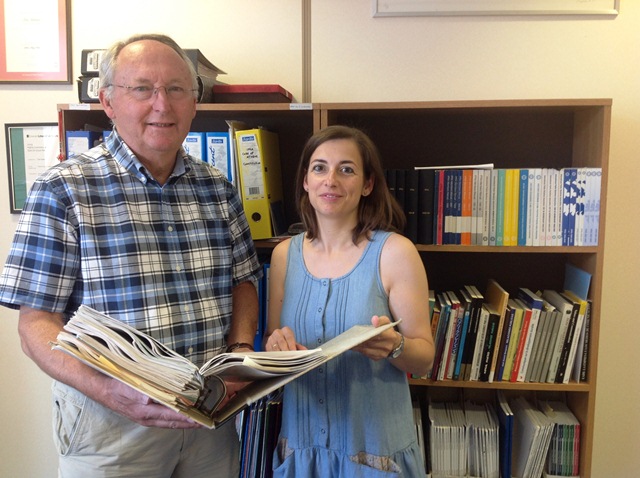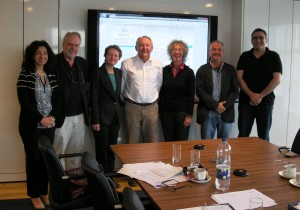Since 2010, Professor Tom Watson of the Faculty of Media & Communication has been developing a productive teaching and research association with Leipzig University in Germany. Following a successful application to the FIF Erasmus fund, he will be making his fourth visit in June 2015.
As Leipzig’s research on communication management is Europe-leading, headed by Professor Dr Ansgar Zerfass, research-based material for teaching to BA (Hons) Public Relations and MA Corporate Communication students will result from the visit. Professor Watson will also gain insights on the teaching of communication management for BU’s new MA Corporate Communication.
Working with Emeritus Professor Dr Günter Bentele on the history of PR in Western Europe will lead to publications and conference papers, and development of new archival resources. The visit will also aid the objectives of the European Public Relations History Network (EPRHN), which was formed by Professor Watson and Professor Dr Bentele and others, through investigation of archives at Leipzig. New research publications which will result from the two researchers’ joint work on the history of European public relations in the three decades after World War II.
This research will also assist preparation of material and lectures for the forthcoming BA (Hons) History. During the visit, Professor Watson’s teaching commitments will include:
- Lectures on the history of public relations to BA students
- Lectures and seminars on corporate social responsibility, management of communication performance, and quantitative research methods for MA and PhD students.
- A seminar for MA students regarding the history of PR is western Europe since WW2














 Upcoming opportunities for PGRs – collaborate externally
Upcoming opportunities for PGRs – collaborate externally BU involved in new MRF dissemination grant
BU involved in new MRF dissemination grant New COVID-19 publication
New COVID-19 publication Conversation article: London Marathon – how visually impaired people run
Conversation article: London Marathon – how visually impaired people run MSCA Postdoctoral Fellowships 2024
MSCA Postdoctoral Fellowships 2024 Horizon Europe News – December 2023
Horizon Europe News – December 2023